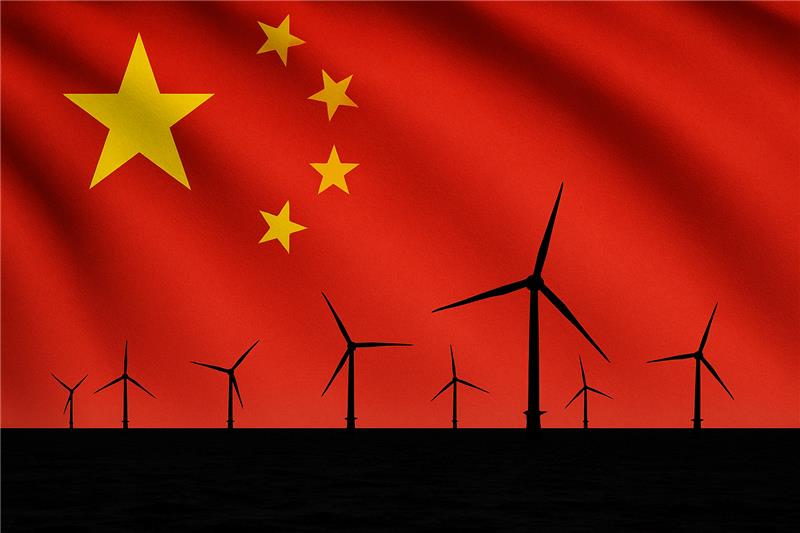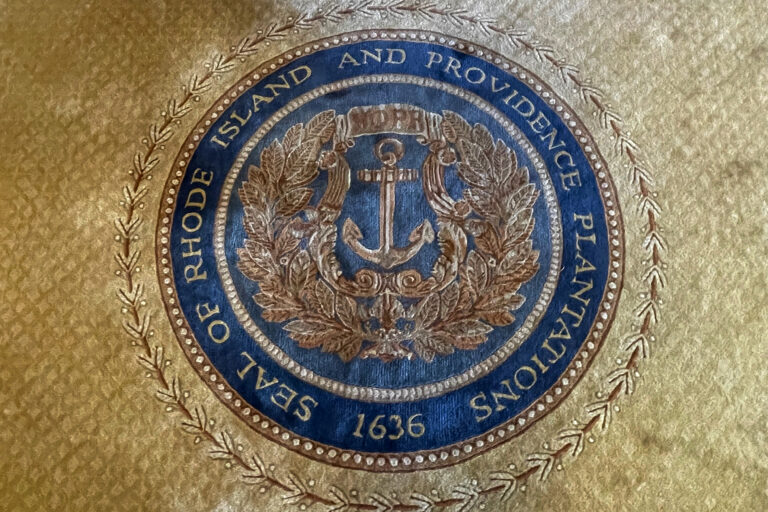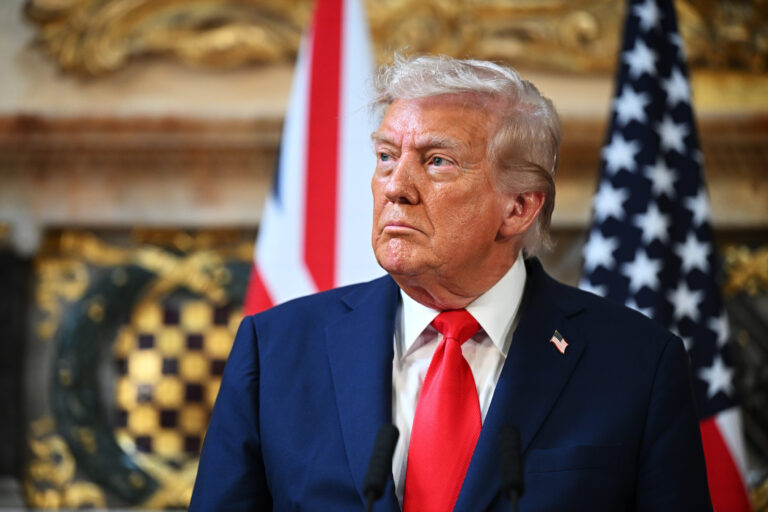
A Chinese company that will be supplying turbines for a new wind farm to serve NATO member Germany is run by a military veteran who has sworn eternal loyalty to the Communist Party and is staffed by many ex-soldiers, according to details obtained by Newsweek.
The history of military and political involvement – and continued expressions of loyalty – by the founder and president of Ming Yang Group, Zhang Chuanwei, underlines a potential security challenge for European countries as their drive to install more renewable energy sources risks a growing dependency on technology from China for the electricity for homes, businesses and defense systems.
The readiness of some European countries and NATO members to tie their futures to an increasingly powerful China also threatens to put them under greater scrutiny from the United States as its relations worsen with its main global adversary. President Donald Trump has repeatedly said that Europe was failing to uphold its own security and defence.
The Waterkant wind farm project in the North Sea is going ahead with Ming Yang Smart Energy as the supplier despite a warning from a German government defense think tank, which said allowing Chinese firms to supply wind power equipment brought technology, political and supply chain risks, and issued a “clear” advice against it, according to a confidential report seen by Newsweek.
Waterkant is due to go online in 2028 with nearly 300 megawatts of generating capacity and will supply up to 400,000 households, according to Luxcara, the Hamburg asset company that awarded the contract to Ming Yang. The project is close to three NATO states – Germany, the Netherlands and Denmark.
Critics have raised concerns over the project’s proximity to German military live fire exercise zones and over the possibility that it could open the door to the dumping of state subsidised Chinese wind energy equipment that would harm European suppliers – as happened to Europe’s once-flourishing solar panel industry.
Luxcara spokesperson Lisa Zillessen told Newsweek the project was technologically safe, that it was “fully aware of the political implications” of the decision to grant the turbine contract to Ming Yang and that renewable energy targets – and energy security – “cannot be achieved without Chinese components.” Zillessen did not answer questions on Ming Yang’s military and party ties.
Ming Yang did not respond to emailed requests for comment.
Germany’s Interior Ministry said it would not comment on specific projects. “We take very seriously the possible security risks connected to untrustworthy manufacturers. This is especially so in the energy sector which is of especial importance due to its relevance to supply security,” spokesperson Henning Zanetti told Newsweek in an email.
The Chinese embassy in Berlin did not respond to a request for comment.

Newsweek
Upholding the Party Oath
It is not unusual for Chinese industry leaders, including those in non-state owned companies, to have ties to the Communist Party or its military, the People’s Liberation Army, but Zhang’s are particularly strong.
He joined the PLA in 1978, aged 16, and applied to join the CCP aged 18, according to a Chinese-language portrait and interview with Zhang on the website of the Guangdong Department of Veteran Affairs.
“Since joining the party, Zhang Chuanwei has always been loyal to the party, adhered to his beliefs, maintained his true colors, and fulfilled his original intention and oath when joining the party with practical actions,” the 2023 portrait said. “He has taken it as his mission to develop the country through industry and serve the country through industry.”
“The Party Committee of Ming Yang Group … has given retired soldiers important tasks, put them in important front-line positions, key projects and assault tasks,” said the portrait which was titled: “Zhang Chuanwei: Always out front, maintaining original character, serving the country through industry and making new contributions.”
The group employed more than 300 ex-soldiers and in 2022, “more than 50 percent of the teams had contributions from veterans who were either leaders of the assault teams or the backbone for key tasks,” the portrait said. It did not make clear what “assault teams” meant or say where the work took place.
Arnold C. Dupuy, an adjunct professor at George Mason University and Virginia Tech and the chair of the NATO Science and Technology Organization’s program Energy Security Resilience, Capabilities and Interoperability said that in his view the project should not be going ahead.
“There are so many arguments against this, whether its security, supply chain, protecting domestic institutions, that it’s not a prudent course of action,” Dupuy told Newsweek.
He said the industrial control systems of major energy projects could make them routes for attack – citing U.S. allegations that China has spent years positioning itself in civilian critical infrastructure systems in the United States through a cyber campaign called Volt Typhoon.
Wind Energy and Security
Waterkant is the first project for Ming Yang in the North Sea and comes as debate swirls in Europe over the role of Chinese suppliers.
Europe is undertaking vast investment in renewable energy with a goal of achieving “Net Zero” carbon emissions by 2030. Some countries have also seen it as a way of diversifying energy away from a previous reliance on Russian natural gas. But more investment threatens to bind Europe’s future ever more closely to China.
Ming Yang is a possible contender for a wind farm project in Scotland as well as a turbine manufacturing facility there. Last year, however, Norwegian authorities rejected its bid to supply an offshore wind project in the Nordic country, without saying why.
Europe must prioritise renewable energy that meets security criteria, said Isabelle Dupraz, deputy director of the European Initiative for Energy Security, a Brussels-based think tank. “Right now there’s no sense of prioritisation,” she told Newsweek, noting that the European Commission was investigating Ming Yang for unfair state subsidies.
The Commission did not respond to Newsweek‘s requests for comment.
German Warning
In the confidential report in January for the German Ministry of Defense, reviewed by Newsweek, the German Institute for Defence and Strategic Studies (GIDS) said China was using industrial policy, including renewable energy manufacturing by private companies such as Ming Yang, to create leverage as it sought to change the global order.
The report pointed out that Zhang had called for wind energy to be built throughout the contested South China Sea while he was a delegate to the National People’s Congress, in waters well outside of China’s exclusive economic zone. According to Zhang’s company biography he was a delegate to two congresses.
“One cannot exclude that all areas of critical infrastructure that are exposed to outside influence may not be available or fully available in a crisis or conflict,” GIDS said.
Luxcara says it had ruled that out.
“Luxcara has adopted a proactive de-risking approach to identify and address risks at an early stage. As part of this process, all relevant factors – especially technical, economic, and security-related aspects – have been thoroughly examined, also with the support of renowned external experts,” Zillessen said. “Following this comprehensive assessment, no findings emerged that would have precluded the conclusion of a contract with Ming Yang,” she said.




